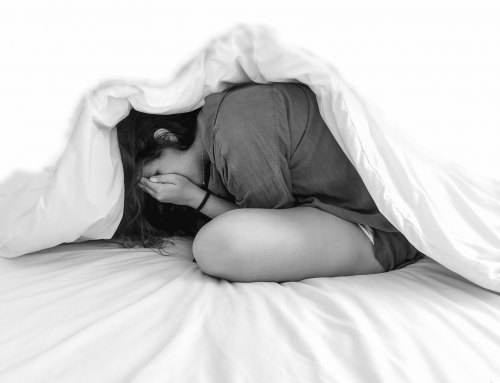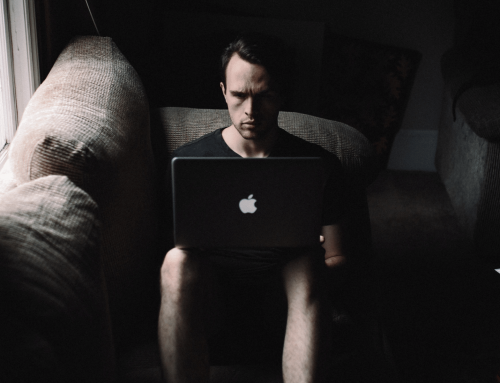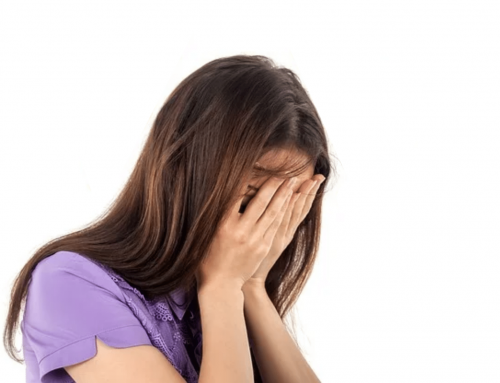Anxiety is a condition all of us experience sometimes in our life and can include feelings of unease, worry, fear, nervousness, apprehension and feelings that something bad is going to happen.
These feelings are normal when we are feeling threatened, or are making decisions that will affect the rest of our life, including taking exams, getting married or divorced, having a baby, moving away from home, being diagnosed with an illness, going into hospital, starting a new job, giving a presentation etc. Once the threat has passed or in time our bodies should return to normal.
Symptoms of anxiety
Anxiety is related to our ‘fight and flight’ response. This is where our body responds in a way to make us more alert, enabling us to react quicker.
When we are anxious our breathing becomes quick and shallow and our hearts beat faster, pumping oxygen rich blood to the muscles needed to physically fight or flee from the danger. In modern society we are rarely faced with threats that require such a response, however, our body still reacts the same when we are feeling stressed or are worried about the outcome of a situation.
Sometimes it is difficult to recognise when anxiety has become a problem for us, as we can get used to the feelings of anxiety.
Symptoms can be both physical and psychological, you may only experience a few of the following.
Physical symptoms can include:
- Pounding heart
- Tight chest/chest pains
- Blushing
- Feeling hot
- Fast shallow breathing
- Feeling short of breath
- Dizziness
- Headaches
- Sweating
- Tingling
- Feeling numb,
- Finding it hard to swallow
- Dry mouth
- Stomach pains
Psychological symptoms that may be experienced are:
- Extreme fear/worrying (about past or future things)
- Mind racing
- Can’t think straight
- Lack of concentration
- Poor memory
- Impatience
- On edge – like something bad is about to happen, or
- Nervousnes
- Lack of sleep or sleeping badly
- Panic attacks.
There are different levels of anxiety, mild anxiety can feel unsettling. However, severe or long term anxiety can be very debilitating, disrupting sleep and having a major impact on everyday life.
Diagnosing anxiety can be difficult as it’s symptoms are similar to other mental health conditions such as depression. Often a person may be experiencing both.
Anxiety disorders
In addition to different levels of anxiety, there are also different types of anxiety disorders. Some of which are:
- Generalized Anxiety Disorder (GAD), which is generalized worry or anxiety about anything and everything
- Social Anxiety Disorder is a fear of doing or saying something embarrassing that others may judge you for in social situations.
- Panic attacks are overwhelming feelings of fear or terror that can come on. You may feel like you can’t breathe, that you are having a heart attack and/or may die.
- Panic disorders are when you experience regular panic attacks and live in fear of the next attack.
- Phobias are irrational, intense fears about a specific objects or situations e.g. enclosed spaces (claustrophobia) or spiders (arachnophobia).
- Obsessive Compulsive Disorder (OCD) involves obsessional thoughts, images, urges, or doubts that repeatedly invade your mind. These lead to compulsions to repeat certain activities to ensure things are ok, and reduce the anxiety. For example, repeatedly checking you have locked your doors and windows, or repeatedly wash your hands to make sure they are clean.
- Post-traumatic Stress Disorder (PTSD) is triggered by experiencing or witnessing a traumatic event, such as an accident or violent attack. Symptoms include flashbacks and nightmares that can make you feel like you are experiencing it all over again and make sleeping difficult.
Cause of anxiety
The cause of anxiety is varied and different for everyone, sometimes it is a mixture of reasons, other times one specific reason can be identified.
Some possible reasons for experiencing anxiety disorders are: past experiences, diet, drug and/or alcohol misuse, medication, personal situation or lifestyle, genetics or a learned behaviour.
Managing and treating anxiety
If you think you may be experiencing serious anxiety, make an appointment to discuss it with your GP. They will be able to help diagnose and discuss the best treatment for your condition.
There are various treatments including, individual self-help courses (either a book or on-line).
Group therapy can be very effective, a psychologist works with you and others who have similar experiences.
More intense psychological therapies include Cognitive Behavioural Therapy (CBT), which helps you to manage your problems by changing the way you think and behave.
Mindfulness is a method of adjusting your mental state, achieved by focusing one’s awareness on the present moment, while calmly acknowledging and accepting one’s feelings, thoughts, and bodily sensations.
Applied relaxation, is where you learn to relax your muscles in situations where you would normally feel anxious.
Things that you can do that will help anxiety:
- Exercise regularly, at least 150 minutes per week.
- Learn to relax
- Avoid caffeine, smoking and alcohol as these can increase anxiety.
- Search on-line for information on anxiety, self-help courses or books
- Breathing and relaxation techniques
- Support services.
By Mia Ford Honorary Psychology Assistant
More about coping with anxiety
If this article has struck a chord , please do give us a call. An initial telephone conversation is free. Call us on 07412 674550 or send us a message.
The following are support services which you may find helpful:
Mind: Anxiety and panic attacks
Rethink Mental Illness: Anxiety disorders







